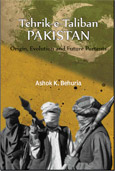Ashok K. Behuria’s Issue brief ‘Visit of Sri Lankan President to India: Issues at Stake’ Published by International Centre for Peace Studies
Senior Fellow, Manohar Parrikar IDSA, Dr Ashok K. Behuria’s Issue brief ‘Visit of Sri Lankan President to India: Issues at Stake’ has been published by International Centre for Peace Studies on 24 December 2024.
The issue brief isolates the India and China factors in Lankan politics and diplomacy and suggests ways in which the two countries can carry their engagement forward.
Read Complete Article [+] Disclaimer: The views expressed by the author are personal and do not in any way reflect the views of MP-IDSA or the Government of India.











